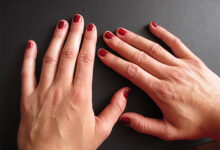- Weight loss principle
- Benefits and risks
- Contraindications
- How to choose
- Recommendations
- Variations
Many people are surprised when nutritionists offer holding a fasting day on chocolate for express and tasty weight loss. Can such a sweet and caloric product really reduce your weight? However, even such miracles happen, because we know so little about the human body. If you are afraid of starving during the fasting day, this option is a real treasure for you.
Weight loss principle

The chocolate fasting day was invented by nutritionists a long time ago, and its effect on the body has been well studied. Weight loss is possible thanks to cocoa beans, which:
- prevent the development of insulin resistance (which is the most common cause of obesity) and improve the regulation of glucose utilization;
- support a healthy intestinal microflora, thanks to which food is digested faster;
- eliminate foci of inflammation in the body that can provoke weight gain;
- reduce depression, so there is no need for stress “eating” anymore;
- accelerate metabolism;
- Effectively break down fat and remove it from the body (but this is quite a long process, and it will not be enough in one day, but it will be the beginning).
That is why it turns out that chocolate, despite its high caloric content (more than 500 kcal per 100 g), is as useful for losing weight as many other dietary products. And the results of such fasting days prove it. If you do everything correctly, you can lose up to 1.5 kg.
Etymology of the word. The word “chocolate” comes from the Mayan language, where “xocolatl” means “bitter water.”
Benefits and risks
When choosing this delicacy for weight loss, it is important to know what benefits you can get and what you should be wary of.
Benefits:
- prevents cardiovascular diseases;
- reduces the risk of stroke and myocardial infarction by preventing the formation of blood clots;
- prevents diabetes by regulating the absorption of glucose in the body;
- normalizes blood pressure;
- makes blood vessels more elastic;
- facilitates autoimmune diseases;
- stimulates intellectual activity, improves memory, and activates thought processes;
- antioxidant substances prevent tumors;
- polyunsaturated acids remove bad cholesterol.
Risks:
- destroys tooth enamel;
- causes food addiction;
- high calorie content;
- the minimum daily portion causes hunger attacks – it is very difficult to endure;
- the diet is monotonous;
- nausea and dizziness are among the side effects;
- can cause fainting;
- often provokes digestive disorders;
- contributes to skin rashes.
Obvious harm from such fasting days can be only in extreme cases: when contraindications were ignored or recommended doses were increased.
Additional information. Chocolate improves heart function, strengthens, and cleanses blood vessels from cholesterol plaques.
Contraindications
Chocolate fasting days are out of the question if you have the following contraindications:
- allergy to cocoa beans;
- pregnancy;
- diabetes;
- obesity;
- hypotension;
- gout;
- urolithiasis;
- joint disease;
- insomnia;
- metabolic disorders.
Of course, a 100 g chocolate bar eaten per day will not provoke an exacerbation of gout or osteochondrosis, but unpleasant side effects are still possible.
Do you know that… chocolate contains “theobromine” – a substance that makes this product poisonous to animals?
How to choose

The assortment of chocolate is now so diverse that the problem of choice arises by itself. Porous, dessert, vegan, diabetic, powdered, liquid… Which type will contribute to the greatest weight loss during a fasting day? Because if you make a mistake in this matter, instead of losing weight, you will gain weight.
- Dark / bitter
The most optimal option recommended by nutritionists for losing weight is dark chocolate. The percentage of cocoa beans responsible for weight loss is maximum: more than 55%. It is better to choose values from 75% – there will be more benefits. This is the product that is labeled “bitter.” If the numbers are lower, the packaging will say “dark” or “black.”
- Milk
Of course, losing weight on milk chocolate is much more pleasant because its taste is very soft and delicate, literally melting in your mouth. However, the cocoa bean content in it is minimal, which means that all the difficulties of the fasting day can go unnoticed. Moreover, milk powder or cream with a fat content of 2.5% in its composition is not at all dietary, and there is practically no benefit from them. That is why nutritionists do not recommend this species.
- White
You can find anything on the Internet. Even such a paradox as a fasting day menu based on white chocolate. Although this delicacy does not contain a single gram of cocoa beans, which trigger all the processes in the body leading to weight loss. That’s why you can’t find anything more useless for fighting extra pounds.
Other species are also of no value in terms of weight loss, so you can safely pass them by.
Interesting fact. The most expensive chocolate is “Chocopologie by Knipschildt.” 453 g of treats costs $2,600
Recommendations
In order to achieve a result, learn how to properly conduct a fasting day and get out of it without harming your health.
Preparation
Chocolate fasting is a real stress for the body, which might not react to it the way you would like. Therefore, it is very important to prepare him for this event in advance. To do this, 2-3 days before it, do the following.
- Start drinking plenty of water.
- Gradually exclude alcohol, carbonated drinks, fried, pickled, smoked, fatty, salty foods and fast food from the diet.
- Switch to a five-meal diet.
- Eat one 20–30 g bar of dark chocolate per day.
- Get enough sleep.
- Go in for sports.
- On the eve of the fasting day, dinner should be as light as possible, and it is better to drink a glass of low-fat kefir before going to bed.
Fasting
- Recommended daily volume – 100 g of dark chocolate.
- Dosage regimen: divide into 5 equal portions, which should be consumed at regular intervals.
- The delicacy is allowed to be washed down with such drinks as green tea (you can use various fat-burning additives like cinnamon or lemon) and herbal teas. Kefir and milk do not fit into the scheme, but can be an exception
Click to rate this post![Total: 0 Average: 0]



